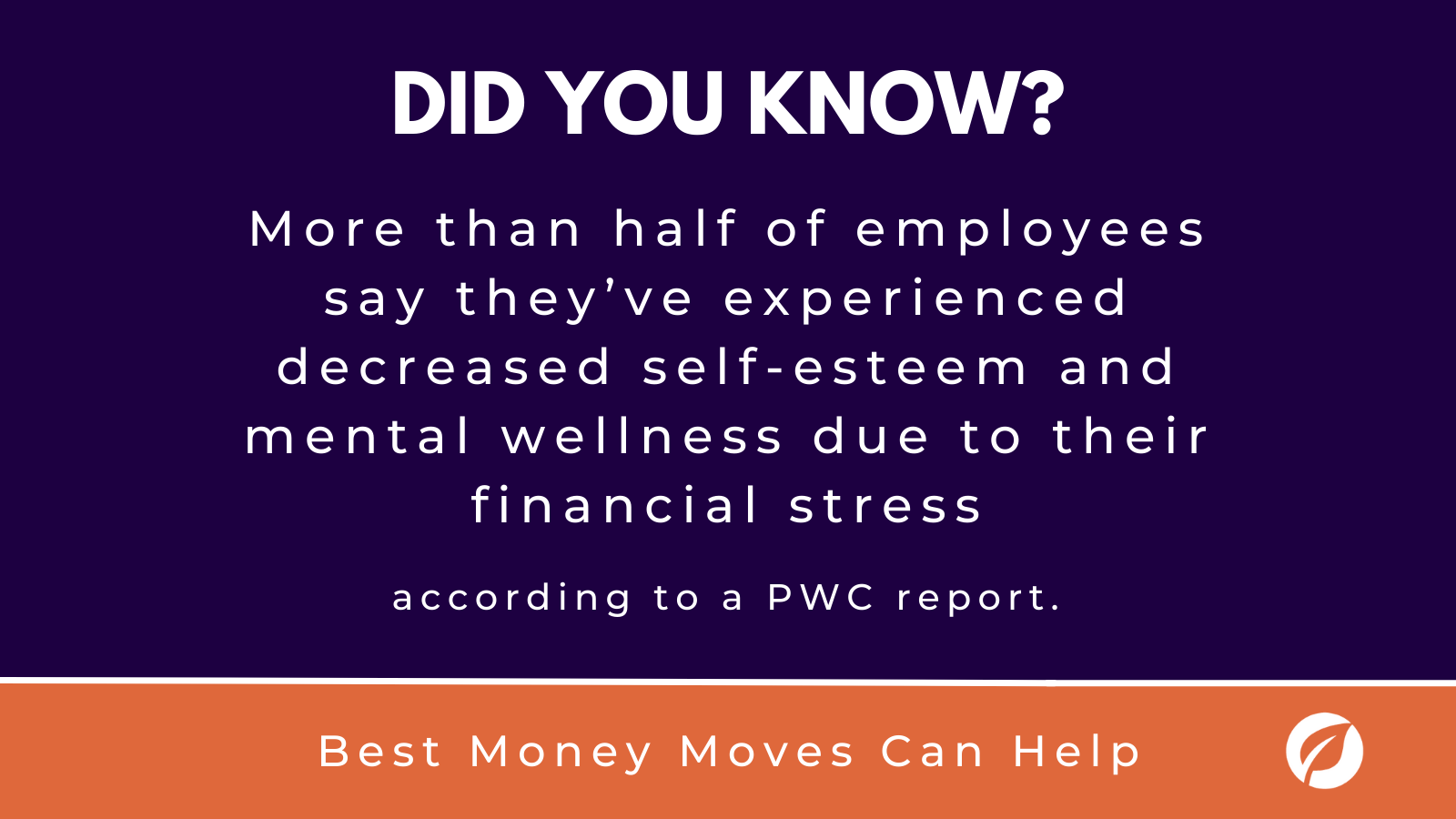More than 2 in 3 adults cite inflation, money and/or the economy as a leading source of stress, according to a report from the American Psychological Association (APA). Consequently, over time, financial stress can end up causing physical, emotional and mental health issues for employees of all ages.
With the support of employers and a robust financial wellness program, employees can dial down their financial stress over time.
1. Financial stress can cause physical health issues.
Over time, money-related stress and worry can lead to physical health issues that may ultimately require a doctor’s intervention. It’s common for those experiencing chronic financial stress to also have physical symptoms, like headaches, migraines, insomnia and fatigue.
According to the APA’s report, employees with high stress levels are 3x as likely to experience headaches and fatigue, compared to employees with average stress levels. These physical health issues can inhibit employees from showing up as their best selves and ultimately decrease employee productivity.
2. Financial stress can harm employees’ mental health and self-esteem.
Beyond the physical body, money-related stress and worries can impact well-being in other areas, such as mental health and self-esteem. According to PwC’s 2023 report, more than half of employees say they’ve experienced decreased self-esteem and mental wellness due to their financial stress. The mental health effects of financial stress can present itself in many ways, including employees feeling anxious, nervous, sad or depressed. Moreover, the lack of a clear, grounded headspace can make it harder for employees to concentrate and remain engaged throughout the day.
3. Financially stressed employees feel less connected to their company.
It’s important to remember that financial stress is not only tied to debt-related worries, like a mortgage or car loan — financial stress can be tied to day-to-day financial expenses, like affording food or transportation to work. Over time, financial stress among employees can lead to retention issues.
Employees that are financially stressed are less likely to feel connected to their employer, and ultimately, may consider looking for another employer. According to a PwC report, employees who are financially stressed are 33% more likely to say that they don’t feel connected to their company than those who are not financially stressed. The lack of belonging at a firm can lead employees to look for another employer.
In addition, in PwC’s report, more than half of all employees say they’d be attracted to employers that care more about their financial well-being. This points to a growing trend of employees increasingly wanting an employer that makes them feel heard and supported, especially regarding their financial well-being.
Financial wellness support has increasingly become a standard in the corporate benefits space. Rather than being seen as a “nice-to-have,” top talent see financial wellness support and benefits as a “must-have” benefit for their next employer.
Looking for a financial wellness program fit for all? Try Best Money Moves.
Best Money Moves is a mobile-first financial wellness solution designed to help dial down employees’ most top-of-mind financial stresses. As an easy-to-use financial well-being solution, Best Money Moves offers comprehensive support toward any money-related goal. With 1:1 money coaching, budgeting tools and other resources, our AI platform is designed to help bolster employee financial wellbeing.
Whether paying off debt or securing a mortgage, Best Money Moves can guide employees through the most difficult financial times and topics. We have robust benefits options for employers, regardless of their benefits budget.
Our dedicated resources, partner offerings and 900+ article library make Best Money Moves a leading benefit in bettering employee financial wellness.
To learn more about Best Money Moves Financial Wellness Platform, let’s schedule a call. Contact us and we’ll reach out to you soon.


